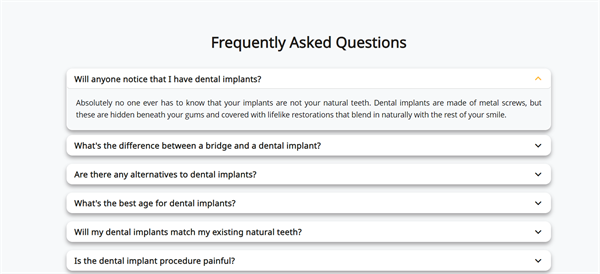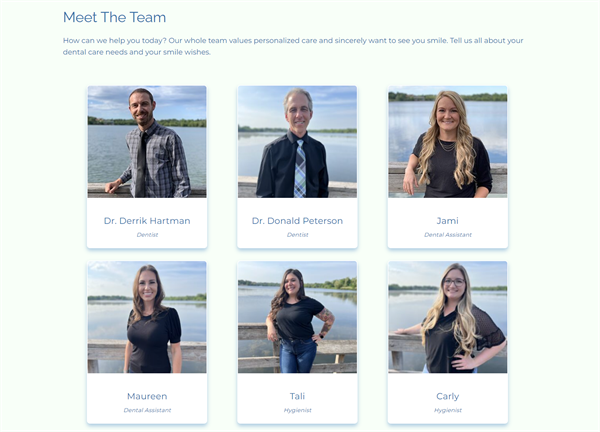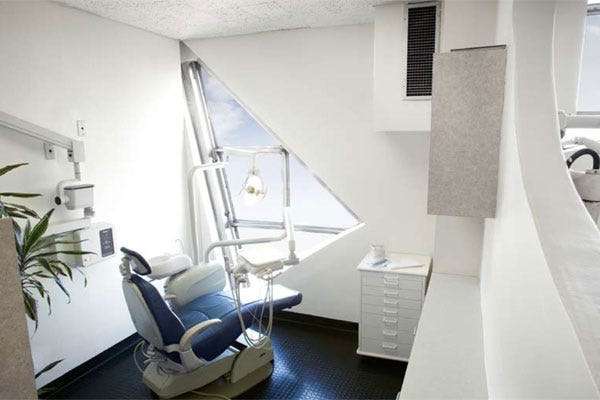Is Your Dental Website Working For You or Against You?
Thinking about revamping your dental website? Whether you're opening a brand-new practice or giving your current site a much-needed refresh, your online presence isn’t optional, it’s crucial. In today’s digital-first world, your website is your front desk, waiting room, and first impression all rolled into one.
But here’s the truth: most dental websites miss the mark.
They look just like everyone else’s. Same stock photos. Same service lists. Same cookie-cutter feel. The result? Patients bounce. New patient bookings stall.
If your site doesn’t quickly connect, build trust, and guide people to book, it’s not doing its job. So how do you fix it?
Let’s break down one of the most impactful changes you can make—and how it can start bringing new patients through your door.
Real Patient Stories: The Trust Factor You Can't Fake
“We treat patients like family.” “We provide exceptional dental care.”
Sound familiar? That’s because every dental website says the same thing.
What actually builds trust? Real people, real stories, real results.
Video testimonials are gold. When potential patients hear a real voice say, “I was nervous, but they made me feel so comfortable,” or “This team gave me my smile back,” it resonates. These aren’t just nice compliments, they’re social proof. And they carry more weight than anything you could write about yourself.
Create a “Wall of Love” on your website—an entire section dedicated to video stories from happy patients. Let their experiences speak for you. Not only does this create an emotional connection, it shows future patients exactly what to expect: compassionate care, real results, and a practice that puts people first.
If you want to learn more on how to shoot patient video testimonials, we have an article on dental practice marketing where we talk about it.
Check out some examples from our clients: Parkside Dental Care / Royal Crest Dentistry
Educational Videos: Explain, Don’t Advertise
Want to really connect with potential patients? Start teaching them.
A basic list of services doesn’t cut it anymore. Patients aren’t just shopping for a cleaning or Invisalign, they’re looking for answers. They want to understand their options, feel confident about their decisions, and know what to expect. That’s where educational videos come in.
Short, friendly, informative videos turn your website into a trusted resource. Break down complex procedures. Answer common questions. Show that you're not just selling treatment, you’re guiding people through it. It builds credibility, boosts your SEO, and keeps visitors on your site longer.
Need inspiration? Here are a few real examples from our clients:
FAQ Section: Be the Go-To Source for Dental Info
Want your website to show up higher on Google and help your patients at the same time? Add a solid FAQ section.
People search online for answers before they ever pick up the phone.
“Do I really need a deep cleaning?”
“Does Invisalign hurt?”
“How much does a crown cost?”
If your website answers those questions clearly and helpfully, Google takes notice, and so do potential patients.
A well-written FAQ section positions your site as a go-to resource. It builds authority, improves SEO, and removes obstacles that stop people from booking.
Show Your Faces, Build Their Trust
People don’t choose dental practices, they choose people.
A well-done “Meet the Team” section is one of the simplest ways to build trust before a patient even walks through the door. Ditch the stiff, outdated headshots. Use warm, professional, and approachable photos that show the real humans behind the masks and scrubs.
Patients want to know who they’ll be trusting with their health. Seeing smiling, welcoming faces makes your practice feel more personal and relatable. It turns a name on a page into someone they can connect with—and that connection makes all the difference.
Online Booking: Simplifying Patient Appointments
In a world where people order dinner, groceries, and rides with a tap, why should booking a dental appointment be any different?
Online booking is no longer a “nice to have.” It’s expected.
Giving patients the option to schedule appointments anytime, without picking up the phone, removes friction. It helps those with busy schedules, language barriers, or phone anxiety feel more comfortable reaching out.
The result? A smoother patient experience, fewer missed calls, and often, fewer no-shows. Convenience builds loyalty and your website should reflect that. Want to see it in action? Check out how easy it is to book on our client's website.
Final Thoughts: Your Website Should Work as Hard as You Do
A high-performing dental website isn’t just about looking polished, it’s about connecting, educating, and converting.
By integrating five powerful elements—real patient testimonials, educational videos, a smart FAQ section, authentic team photos, and easy online booking—you’re not just building a site. You’re building trust. You’re answering questions before they’re asked. You’re making it easier for patients to choose you.
These upgrades don’t just impress visitors, they improve your Google rankings and drive real results. In short, your website becomes more than a digital brochure. It becomes your 24/7 front desk, educator, and patient magnet.
Today’s patients aren’t just looking for a dentist—they’re looking for the right experience.






